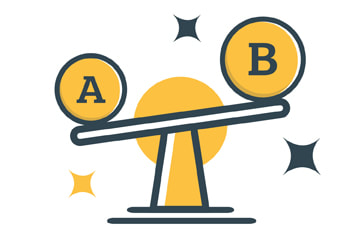Revolut Review - The Definitive New Zealand Guide
We review Revolut, the app designed to make foreign exchange transactions significantly cheaper. We outline the costs, pros and cons and how it comes to Wise.
Updated 13 July 2024
Know This First:
Summary of the Revolut
This guide has been prepared to present the pros, cons and everything you need to know about the features offered. We cover:
Advertising Disclaimer: MoneyHub may earn a referral bonus for anyone that’s approved through some of the below links. Our research and findings are independent of any bank, credit card issuer, or product manufacturer/service provider, and have not been endorsed by any of these entities. Please see our Advertising Policy for more details about how we make money.
Know This First:
- If you're planning to spend money overseas, using a travel money card, credit card or bank-issued debit card have been the most popular methods.
- With every transaction using these cards, cardholders have been hit with foreign currency conversion fees, ATM withdrawal fees and/or a bunch of other fees.
- The Revolut app offers a physical and digital VISA prepaid card and offers market-leading overseas currency conversion fees, free ATM withdrawals (up to NZ$350/month), an app to track and manage your money and a fee-free allowance of NZ$2,000 per month.
- Our review outlines the pros and cons of Revolut to help determine if the is app (and card) are right for you.
Summary of the Revolut
- The Revolut card is relatively easy to sign up to and packed with features. While it doesn't have as many currency storage options as a Wise card or legacy travel money card, you can store NZD, AUD, EUR, USD and GBP.
- There is a one-off $4.99 charge to deliver a physical Revolut VISA prepaid card. You can activate Revolut's virtual VISA prepaid card as soon as you sign up and get approved, and then you can use it right away. After you pay the one-off delivery fee, there is no further ongoing charge (i.e. when the card renews). Despite the upfront fee, we consider the ongoing savings to be considerable, especially when compared to a travel money card.
- Right now, most banks charge between 2% and 2.8% of your purchase price in 'overseas currency conversion' fees when using a debit card. This means if you spend NZ$100 overseas, your bank charges you $2.10 to $2.80 on top of that. It is these fees that soon add up.
- The Revolut VISA prepaid card offers a much better deal with 0.50% exchange fees applying when you exceed the fair usage limit - NZ$2,000 for standard accounts, and NZ$20,000 for Premium and unlimited for Metal, but plan fees apply.
This guide has been prepared to present the pros, cons and everything you need to know about the features offered. We cover:
- How do I Apply for Revolut Card?
- Revolut vs Wise and Other Options - What Offers the Best Deal?
- Revolut - Pros and Cons and The Bottom Line
- Claims made by Revolut - Are They True?
- Revolut Must-Know Facts
- Who is Revolut Most Suited To?
- Frequently Asked Questions
Advertising Disclaimer: MoneyHub may earn a referral bonus for anyone that’s approved through some of the below links. Our research and findings are independent of any bank, credit card issuer, or product manufacturer/service provider, and have not been endorsed by any of these entities. Please see our Advertising Policy for more details about how we make money.
How to Join Revolut (and Get a Digital Debit Card in Minutes):
Signing up is straightforward, but there are some personal verification steps to complete. We outline the process below:
- Sign up for a Revolut account. You'll need to download the app first, which can be found by entering your phone number.
- You'll need to enter your phone number, set a passcode, fill in your personal details and upload a form of ID. This can be your driver's licence, which, when done, will prompt Revolut to verify you. This can be instant or take 1-2 days.
- It's best to wait until your ID is verified before topping up your account (via card or bank transfer) just in case there are issues.
- Once your ID is verified, you can access your digital VISA prepaid card and have the option to pay the one-off delivery fee for a physical card.
- Activate your Revolut card. Once you receive your card, you will need to activate it. You'll also need to memorise your PIN. Once done, your card is good to use.
Revolut vs Wise and Other Options - What Offers the Best Deal?
Revolut offers something no one does - a NZ$2,000 fee-free exchange allowance per billing cycle (a combined limit that includes all types of exchanges). For anything above this, a 0.5% fee will apply in addition to the exchange specific fees.
Is Revolut the best option for an international debit or prepaid card?
Is Revolut the best option for an international debit or prepaid card?
- Firstly, the fact that Wise offers the best FX rates and offers cheaper fees than bank-issued debit cards is long established in our research.
- The question is then one of Wise vs Revolut and which service is more cost-effective. Revolut's $2,000 monthly free-fees allowance means Revolut gives you more foreign currency for the same amount of NZD when compared to Wise when you transact under this limit.
- However, there is a sting - if you make a Revolut transaction during the weekend then you'll pay a 1% fee transact during the weekend you'll pay more to use Revolut on every transaction.
- If you're sending pr transacting large amount, our testing of a NZ$50,000 and $100,000 transfer to GBP and AUD suggests that Wise and Revolut is almost the same FX rates, with Wise being slightly better, but the differences are small.
- If you're withdrawing from ATMs, both Wise and Revolut offer free withdrawals up to NZ$350 per month, however Revolut lets you make up to five withdrawals without a fee within the withdrawal limit, whereas Wise limits it to two. Note that third party ATM fees may apply. Wise then charges 1.75% on any money withdrawn after this, whereas Revolut charges 2.00%, and if you withdraw during a weekend or UK public holiday, you'll pay another 1% meaning it's a total 3% fee.
- Our Revolut vs Wise comparison outlines the fee and features side-by-side.
MoneyHub Founder Christopher Walsh shares his experiences with spending money overseas:
|
"I believe travel money cards are, for the most part, very poor products. Since COVID, some players have closed up shop and I don't see them coming back. I won't miss them - they make travel money confusing and risky.
Ongoing research and comparisons conclude that the Revolut and Wise are the cheapest options and offer powerful apps to track your spending. On the other hand, the 'legacy' travel money cards are uncompetitive and expensive. And the fees they charge are generally appalling. Now Revolut has launched and we're pleased to see a similar product make these apps more accessible and understood by New Zealanders. Travel should be fun; you shouldn't spend time strategising how to 'best use' your travel money card. And while Wise and Revolut make topping up your card and spending very easy and transparent, we're not fans of Revolut's 1% weekend penalty charge. If I'm on a long-weekender in Sydney I don't want to think that if I'm paying an extra 1% on this dinner 'because it's 8am on Saturday in London. I believe Revolut would be near-perfect if it removed this charge, and we hope they do in the not too distant future. However, Revolut does let you top-up and transact with a leading exchange rate, and we're happy to see another player enter the market to give consumer choice". |
MoneyHub Founder
Christopher Walsh |
Revolut - Pros and Cons
To properly evaluate Revolut, we list its pros and cons:
Pros:
Cons:
Be Aware: It's not a credit card, so you will need to have all the money you need in your Revolut account before making a purchase. This isn't a con but simply feature and arguably a helpful way to avoid to getting into debt while on holiday.
Pros:
- Minimal foreign transaction fees - you will never pay a fee for withdrawing money from an overseas ATM if you stay under NZ$350/month (banks charge as much as NZ$6 per transaction).
- No annual fees - There is a one-off $4.99 charge to issue the physical Revolut VISA prepaid card, but no fees after that for having an account.
- Lower currency conversion fees - banks charge 1.80% to 2.80% for Visa Prepaid Card transactions, whereas Revolut converts major currencies for around 0.50%, and there's a $2,000 monthly fee-free allowance so you'll only pay the 0.50% after you spend over $2,000.
- Revolut exchange rate - Revolut uses its exchange rates (similar to how Wise does this, e.g. the one you will find on Google). In comparison, exchange rates used by banks, PayPal and travel money cards often conceal a markup.
- Free cash withdrawals up to NZ$350 (or NZD equivalent in foreign currencies) every 30 days, up to five visits to an ATM.
- Google Pay - You can integrate the card into Google Pay to pay digitally rather than with a physical card.
- You can convert and store NZD, AUD, USD, EUR and GBP balances in advance (like you do with a Travel Money Card). Otherwise, Revolut will convert your money automatically at the Revolut exchange rate on your NZD balance when you make a transaction.
Cons:
- The 1% weekend rate: Overall, we believe Revolut could be a great travel money card given the fee-free allowance of $2,000 and competitive FX rates, but we find the 1% weekend and UK public holiday fee annoying.
- App can be difficult to use - our research team noticed the app hangs, which resulted in us funding the account from our business credit card twice by accident. You'll also want to enable the fingerprint access because the app logs you out repeatednly, and punching in the six digit code can get annoying.
- The website-accessed version has limited features: Revolut wants you to use the app, so what you can do when you log into your account using a web browser is severely limited.
Be Aware: It's not a credit card, so you will need to have all the money you need in your Revolut account before making a purchase. This isn't a con but simply feature and arguably a helpful way to avoid to getting into debt while on holiday.
Revolut - The Bottom Line:
- Revolut and its VISA prepaid card delivers low, transparent fees and market-leading exchange rates. The card has been popular in Europe where it first launched, and we're pleased to see it finally launch in New Zealand.
Where it wins:
- We are confident that when it comes to purchasing in major foreign currencies, the service is cheaper and superior to all existing travel money cards on offer, and, in some cases if you avoid the penalty 1% weekend charge, cheaper than Wise.
- We also believe it offers greater value than bank debit cards when making over-the-counter or online transactions in foreign currencies.
- In most cases, spending using a credit card is, like-for-like, more expensive than using Revolut's VISA prepaid card. However, there are exceptions such as the market-leading Flight Centre Mastercard.
- Payments are processed using Visa at the Revolut rates, which are superior to Visa's.
Where it falls short:
- Revolut has some limitations in its functionality; none of this matters for a travel money card, but it's worth knowing that the bank account associated with your Revolut VISA prepaid card prohibits direct debits and there are no branches to do over-the-counter transactions. Furthermore, you won't earn interest on any balance, and there's no overdraft facility, and joint accounts are not available, which means if you're a couple or family travelling overseas and you want a physical card each, you'll need to open separate Revolut accounts.
- While there is a free-fee limit of NZ$350 for ATM withdrawals in New Zealand or overseas (up to five withdrawals), after that is reached there is a 2% fee. Also, within New Zealand, the ANZ charges a $3 withdrawal fee on cash in NZD if you use a local ATM. Kiwibank, Westpac, BNZ and ASB do not charge this fee.
Claims made by Revolut - Are They True?
We examine the claims made by Revolut and explain the detail behind the headlines.
"Unlock instant payments, easily split bills, and exchange currencies in real-time. One app, for all things money"
Is it true?
"Spend abroad like a local with excellent exchange rates"
Is it true?
Is it true?
- Yes. You can receive payments into a NZD account, exchange currencies as you need them. The splitting bills feature is for merchants, also known as Revolut Business, but this review focuses on personal needs (e.g. foreign exchange transactions and travel money).
"Spend abroad like a local with excellent exchange rates"
Is it true?
- In a sense, yes. The FX rates are market-leading, and all Revolut customers get an allowance of $2,000 fee-free transfers and transactions per month. However, fees do apply after this, and if you transact during the weekend, you'll be hit by a 1% fee which is frustrating.
- There is no annual fee for the Revolut VISA prepaid card, and you can make a limited number of cash withdrawals overseas without a transaction charge. Many banks charge $5 or $6 per transaction.
Must-Know Revolut Card Facts
There are fees for many transactions, so it's essential to understand how they work
Must-Know Fee information:
*Without taking into account daylight savings, the equivalent time period in NZ is approximately Saturday 11am (NZDT) to Monday 12pm (NZDT). If there's a public holiday in the UK at the time you make a transaction, you'll also be charged the extra 1%. |
Revolut offers far better value than traditional Travel Money Cards, but we argue it's not as good as WiseOur review of Travel Money Cards showed a range in foreign exchange rates between providers. Important facts include:
|
Banks charge between 1%+ and 2.80% in debit card currency conversion fees; Revolut is around 0.50%On a single transaction, the difference isn't significant. But they add up. We believe the high conversion charges are completely unnecessary. Revolut charges one quarter to one fifth what the bank debit cards charge when processing the same transaction for the most common currencies.
|
Your money is protected (we think)
|
Who is Revolut Most Suitable For?
- Looking for a travel money card? If so, it's a good idea to consider Revolut; while Wise is a favourite around New Zealand, Revolut's FX rates mean you'll get around 0.40% extra on your money based on our recent research. However, if you transfer during the weekend (UK hours) or during a British public holiday, Wise is much cheaper which arguably makes Wise a more convenient and less complicated option without converting 'weekend hours' to wherever you are in the world when you make a purchase.
- Shop online or travelling overseas? Our view is that anyone who buys items online or in-person using a debit card that is charged in foreign currencies could benefit. Revolut's VISA prepaid card charges significantly lower foreign currency conversion fees compared to all banks and has far better exchange rates.
- Going on an OE? Currently Revolut only offers a New Zealand account number; AUD, GBP, EUR and USD accounts are marked as 'coming soon'. If you want account details to get paid and make transfers, only Wise offers this.
Revolut - Frequently Asked Questions from the MoneyHub Community
1. How long does the Revolut card take to arrive?
Revolut makes this clear - depending on the delivery method chosen, for standard, it can take up to 10 days and for express up to 5 days to receive the card.
2. Do I need to convert money before I go overseas?
No - you can load the card with NZD, which will be deducted after every transaction.
3. Are you best to load the card in your home currency first and then convert it to the multiple currencies you need?
It depends; many people just load their card with their home currency, e.g. NZD (which is free), and then use the card overseas, whereby the FX rate of the day will be applied. This is a popular option as you don't need to lock in an exchange rate.
4. There is a fee if I want to convert my NZD to Euro (or any other currency). If I use it overseas, will this fee be bigger or smaller?
Revolut charges a fee based on the value of the transaction, so overall, there won't be any difference. The only difference will be the exchange rate which changes all the time. However, If you use your Revolut card to spend in another currency at the weekend, an additional charge will be added for the currency conversion. The same fee applies to international payments sent through the Revolut app on Saturdays and Sundays.
5. Can I link my Revolut card to my bank account? Or do you have to load the card before using it?
You will need to have a balance in your Revolut account before the card works; otherwise, it has nothing to settle your purchase. The easiest way to top up the card is to add your Revolut account number (which will be provided when you sign up for a Revolut card) and transfer the amount of money you want. In New Zealand, this takes a couple of hours during a business day.
6. If, for example, I convert NZD into EUR in January and spend EUR in March, is the January exchange rate applied?
Yes - because you have bought EUR, the rate is locked in. However, this only applies to the EUR in your wallet. So if you spend all your EUR, you'll need to buy more, and the latest exchange rate will apply.
7. Do I need to put EUR in my wallet to spend in EUR?
No - the transaction will be approved if you have money in any currency on your Revolut account, and it's enough to settle a purchase.
8. If I use the Revolut VISA prepaid card in the UK and I have pounds in my wallet, does it automatically choose the pounds as a default currency?
Yes, it does; Revolut uses the currency you're spending first if you have that in your wallet; then, if you're short of pounds, it will fund the purchase with any other currency available.
9. Is Revolut the best travel money card?
It depends on your needs; we don't like the weekend penalty that's applied as it makes what is otherwise a strong offering confusing. We also don't like the app as much as Wise, and the web version has very limited functionality. As such, we suggest you consider Wise as well, which we compare alongside Revolut here.
Revolut makes this clear - depending on the delivery method chosen, for standard, it can take up to 10 days and for express up to 5 days to receive the card.
2. Do I need to convert money before I go overseas?
No - you can load the card with NZD, which will be deducted after every transaction.
3. Are you best to load the card in your home currency first and then convert it to the multiple currencies you need?
It depends; many people just load their card with their home currency, e.g. NZD (which is free), and then use the card overseas, whereby the FX rate of the day will be applied. This is a popular option as you don't need to lock in an exchange rate.
4. There is a fee if I want to convert my NZD to Euro (or any other currency). If I use it overseas, will this fee be bigger or smaller?
Revolut charges a fee based on the value of the transaction, so overall, there won't be any difference. The only difference will be the exchange rate which changes all the time. However, If you use your Revolut card to spend in another currency at the weekend, an additional charge will be added for the currency conversion. The same fee applies to international payments sent through the Revolut app on Saturdays and Sundays.
5. Can I link my Revolut card to my bank account? Or do you have to load the card before using it?
You will need to have a balance in your Revolut account before the card works; otherwise, it has nothing to settle your purchase. The easiest way to top up the card is to add your Revolut account number (which will be provided when you sign up for a Revolut card) and transfer the amount of money you want. In New Zealand, this takes a couple of hours during a business day.
6. If, for example, I convert NZD into EUR in January and spend EUR in March, is the January exchange rate applied?
Yes - because you have bought EUR, the rate is locked in. However, this only applies to the EUR in your wallet. So if you spend all your EUR, you'll need to buy more, and the latest exchange rate will apply.
7. Do I need to put EUR in my wallet to spend in EUR?
No - the transaction will be approved if you have money in any currency on your Revolut account, and it's enough to settle a purchase.
8. If I use the Revolut VISA prepaid card in the UK and I have pounds in my wallet, does it automatically choose the pounds as a default currency?
Yes, it does; Revolut uses the currency you're spending first if you have that in your wallet; then, if you're short of pounds, it will fund the purchase with any other currency available.
9. Is Revolut the best travel money card?
It depends on your needs; we don't like the weekend penalty that's applied as it makes what is otherwise a strong offering confusing. We also don't like the app as much as Wise, and the web version has very limited functionality. As such, we suggest you consider Wise as well, which we compare alongside Revolut here.
Related guides
Travel Money by Country:
- Wise Debit Card Review
- Wise Review
- Best Foreign Currency Debit & Credit Cards
- Travel Money Cards
- Wise Debit Card vs Travelex Travel Money Card
- Wise Debit Card vs Cash Passport Travel Money Card
- Wise Debit Card vs Air New Zealand OneSmart Travel Money Card
- Mastercard vs Visa
- Flight Centre Mastercard Review
Travel Money by Country:












